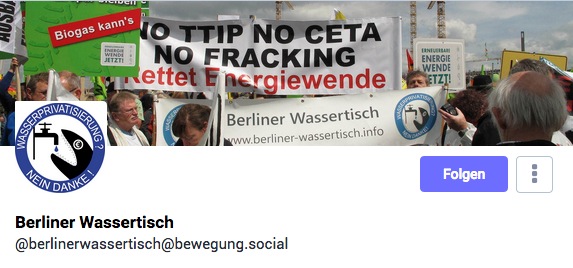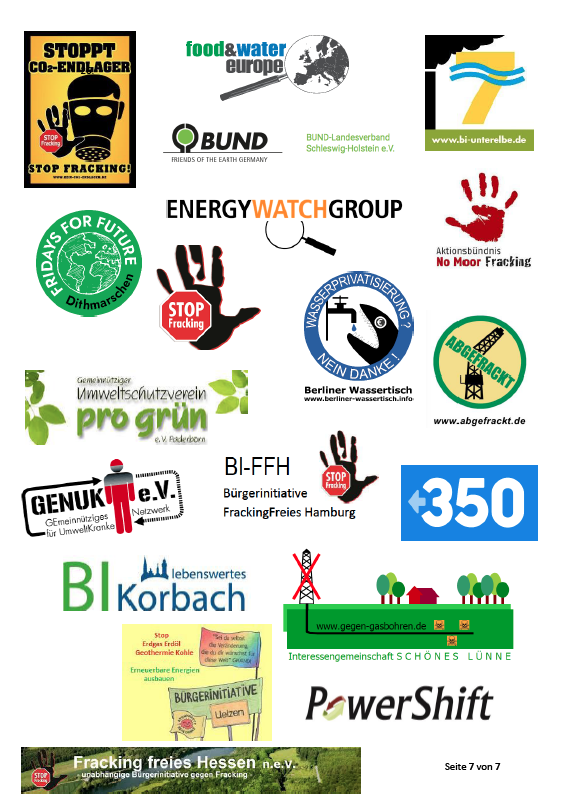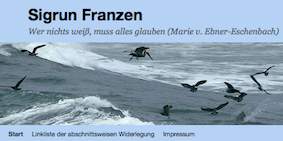Privatsphäre stärkt, Überwachung schwächt! #StopScanningMe


Suche

Schiefergas-Fracking in Deutschland?

#StopEUMercosur Erklärung
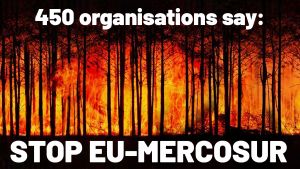
Aktion Greenpeace: #StopEUMercosur

#SaveTheOkavangoDelta
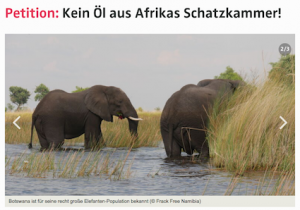
Erfolgreich! Über 1 Million Unterschriften „Green Deal“ – Europäische Bürgerinitiative (EBI)

Stop Energiecharta. #NoECT. Wir wollen raus aus dem Anti-Klimaschutz-Vertrag
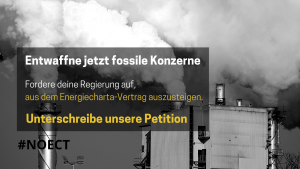
Europäische Bürgerinitiative gegen biometrische Massenüberwachung (17.2.2021-17.2.2022)

Lebensgefährliche Entwicklung: Gewinnorientierung im Krankenhaus
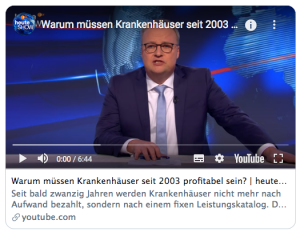
- Wassertisch-Plenum,
im NewYorck / Bethanien Mariannenplatz 2A
10997 Berlin Openstreetmap fällt coronabedingt aus Überblick (Messstellen: Oberflächengewässer und Grundwasser)


-
Letzte Beiträge
- AöW zum Weltwassertag 2023: Interkommunale Zusammenarbeit noch stärker ermöglichen
- Greenpeace: Fracking – eine unterirdisch schlechte Idee
- Bürgerinitiative gegen CO2-Endlager: Offener Brief an den Bundesminister für Wirtschaft und Klimaschutz Dr. Robert Habeck
- BUND gegen CCS-Endlager
- Jürgen Knirsch: CETA-Handelsabkommen: Eine trügerische Wette auf die Zukunft (Leserbrief an die SZ vom 8.12.2022)
- Neuere Materialien und Dokumente zur CETA-Debatte
- TAZ: Hamburger Abgeordneter über Olympia-Gedankenspiele: „Es kommt zu Vertreibungen“
- NDR: Bewirbt sich Hamburg noch einmal um Olympische Spiele?
- NGO-Bündnis fordert mit gemeinsamen Appell die Senkung des absoluten Ressourcenverbrauchs
- Allianz der öffentlichen Wasserwirtschaft warnt vor CETA: Mit dem jetzigen CETA-Text wird der Schutz der öffentlichen Wasserwirtschaft vor einer Kommerzialisierung weiter geschwächt

Delius-Klage
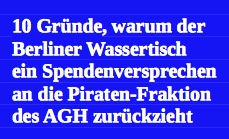
Keine Steuergelder für LNG-Fracking-Gas Terminals in Deutschland!
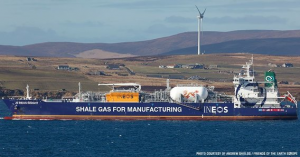
RSS-Feeds
Schlagwort-Archive: LNG-Terminal Stade
Letter of Desinterest: 32 Organisationen erteilen LNG-Terminal in Stade öffentliche Absage
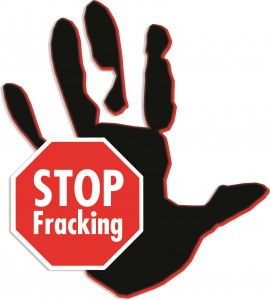 Per email: sales@hanseastic-energy-hub.de
Per email: sales@hanseastic-energy-hub.de
Hanseatic Energy Hub GmbH
Am Sandtorkai 48
20457 Hamburg
CC: Investor Partners Group partnersgroup@partnersgroup.com
CC: Lower Saxony’s Environmental and Energy Minister olaf.lies@mu.niedersachsen.de
CC: Lower Saxony’s Economy Minister bernd.althusmann@mw.niedersachsen.de
Cc: LNG Agency Lower Saxony info@mariko-leer.de
Open Season offering capacity for LNG Stade terminal
Letter of Disinterest
1 February 2021
Dear Madam / Sir,
we, the undersigned organisations and groups, express herewith our profound disinterest to book regasification capacities at the LNG terminal Stade, Germany, and explain our position as follows:
1. Negative climate impacts of fossil gas and LNG in particular
Gas is just another fossil fuel that we need to phase out within the next 10 to 30 years if we want to avoid overshooting significant climate tipping-points. The scientific evidence shows that fossil gas is a significant driver of global warming and climate change – not just due to the CO2 emissions produced during combustion, but also because of the methane leaks that occur during extraction and transport Therefore, fossil gas has no significant advantage compared to other fossil fuels.[i]
This is most definitely true for Liquefied Natural Gas (LNG) of which production consumes a considerable amount of energy[ii] (up to 25 percent of the actual energy value of the fossil gas can be lost during the liquefaction process).[iii] LNG transported to Europe (for example from the USA) would have a climate-footprint that is greater than that of coal.[iv]
But even if we leave the existing significant methane emissions aside, we know that global – economically recoverable – fossil fuels extraction projects (currently producing and under-construction), would take the world far beyond safe climate limits, which are already becoming less attainable by the day. Further development and trade of gas reserves is inconsistent with the implementation of the vital climate targets and thus threatens the survival of our civilisation as we know it.[v]
With regard to the European perspective, we have scientific data backing that – from 2035 onwards – the consumption of fossil fuels including fossil gas in the EU will be incompatible with the climate protection obligations under the Paris Agreement[vi] and the climate protection goals of the European Union.[vii] Gas demand is falling and needs to continue to do so in the coming years.[viii] New fossil infrastructure would only provide yet another justification as to why more fossil fuel usage is needed.
2. Fossil lock-in and stranded assets
New gas infrastructure has a significant economic lifespan (usually between 30 and 50 years) that goes beyond the point when we would need to fully decarbonize. The construction of any new fossil fuel infrastructure, therefore, contributes to increasing the risk of missing the EU 2050 climate objective and Paris Agreement targets by creating a “lock in” effect to high levels of gas consumption. They undermine the competitiveness of the much-needed renewable energy rollout by shifting investments into unsustainable projects and by lowering the price of fossil energy via an oversupply.
Ongoing use of fossil fuels like gas without the consideration of climate goals will have devastating economic impacts on both sides of the Atlantic. For example, the 2018 COACCH (Co-Designing the Assessment of Climate Change Costs) study outlines the hundreds of billions of Euros per year that represent the economic costs of climate change in Europe in different scenarios for different sectors. Their review indicates that the costs of inaction will be potentially large in Europe.[ix] The potential, short-term economic boost that LNG-terminals and other fossil fuel projects promise is tiny in comparison to the damages these endeavors will cause in the mid and long-term – we must not fall into this trap if we are to preserve a prospering planet for generations to come.
Economic impacts will also arise because of stranded fossil fuel assets. A 2018 study, commissioned by the EU COM, on “The role of Trans-European gas infrastructure in the light of the 2050 decarbonisation targets”[x] concludes that “the utilisation level of LNG terminals and import pipelines would significantly decrease, and some assets might need to be decommissioned or used for other purposes”.
Another study, published in January 2020, states that investments in new gas infrastructure are “unnecessary to safeguard the security of supply in the EU28 and therefore risk to become stranded assets.” The study includes an analysis of the stranded asset risk of the proposed LNG terminals at Wilhelmshaven and Brunsbüttel[xi]. Stade is not even being mentioned in the report. As you might know, your competitor Uniper for the LNG Wilhelmshaven terminal had to recently announce a re-evaluation of its plans “because of market players‘ reluctance to make binding bookings for import capacities”.[xii]
There is substantial risk to the economies of fossil fuel exporting as well as importing nations from continued investment in fossil fuel infrastructure. A study published in Nature Climate Change found that between one and four trillion dollars in fossil fuel assets globally are at risk from “an already ongoing technological trajectory, irrespective of whether or not new climate policies are adopted”.[xiii]
Climate concerns, non-existent social licenses and pandemic delays are already jeopardizing LNG projects worldwide, as highlighted in July 2020 by researchers at Global Energy Monitor.[xiv] There is widespread opposition of NGOs and grassroots groups against all proposed LNG terminals in Germany (including Stade).[xv] On top of that, a recent published legal opinion reveals that the Stade terminal is not eligible for approval.[xvi]
We therefore urge you to drop the project and invest instead in really climate friendly alternatives to the dying fossil fuel-based business-as-usual model. Whether you view it from a climate or an economic perspective – projects that bet on an increased consumption of fossil fuels are doomed to fail. For the sake of your business and for the sake of our climate, this is not the way forward.
Yours sincerely
Andy Gheorghiu Consulting, Campaigner & Consultant for climate/environmental protection & energy policy
Constantin Zerger, Head of Energy and Climate Protection
Colin Roche, Programme Coordinator, Cimate Justice and Energy, Friends of the Earth Europe
Scott Coombs, Secretary, Love Leitrim
John McElligott Safety Before LNG
Olaf Bandt, Chairman, Friends of the Earth Germany (BUND)
Jim Emberger, Spokesperson
New Brunswick Anti-Shale Gas Alliance New Brunswick, Canada
Wibke Langhorst, Aktionsbündnis No Moor Fracking, Wagenfeld, Germany
Ralf Hübner, Vorsitzender der ARGE Umweltschutz Haseldorfer Marsch, Hetlingen e.V.
Sigrun Franzen, Pressesprecherin Berliner Wassertisch
Katja George, Germany Organizer, 350.org
Abgefrackt, Bündnis Weidener Becken gegen Fracking H.Lindner-Hausner
Felix De Caluwe, Policy Officer, Energy Watch Group
Prof. Dr. Andreas König für den Vorsitz der Wittorfer für Umwelt und Gesundheit (WUG) e.V.
Pascal Bergeron, porte-parole Environnement Vert Plus
Ken Summers, Spokesperson, Nova Scotia Fracking Resource and Action Coalition (NOFRAC)
Renate Maass, Spokesperson, Kein Fracking in der Heide
Jana Bosse, Campaignerin, BürgerBegehren Klimaschutz
Harald Ruecker, Spokesperson, BI lebenswertes Korbach
Prof. Dr. Hermann Ott, (Vorsitzender des Vorstands), ClientEarth – Anwälte der Erde e.V.
Micheal Sawyer, Executive Director, Citizens’ Oil & Gas Council
Volker H.A. Fritz für Arbeitskreis Fracking Braunschweiger Land
Christfried Lenz für BI “Saubere Umwelt & Energie Altmark”
Sarah Stewart, President, Animals Are Sentient Beings, Inc.
Steve Mason, Director, Frack Free United, UK
Fritz Buhr, Ehrenvorsitzender, Gemeinnütziger Umweltschutzverein pro grün e.V. Paderborn
NaLaKiZu Bürgerstark
Dr. Reinhard Knof, Vorsitzender, Bürgerinitiative gegen CO2-Endlager e.V.
Dr. Maria Entrup-Henemann, IG Fracking-freies Artland e.V.
Bernd Liefke, Vorsitzender, Hamburger Energietisch e. V.
Charlotte Valløe, Block Baltic Pipe, Denmark
Ende Gelände!
[i] http://www.howarthlab.org/
[ii] https://iopscience.iop.org/article/10.1088/1742-6596/547/1/012012/pdf
[iii] https://www.fluessiggas1.de/lng-gas-entstehung-und-einsatz-von-fluessigerdgas/
[iv] https://data.oireachtas.ie/ie/oireachtas/committee/dail/32/joint_committee_on_climate_action/submissions/2019/2019-10-10_opening-statement-robert-w-howarth-ph-d-cornell-university_en.pdf
[v] Oil Change International. „Debunked: The G20 Clean Gas Myth“. 11 June 2018. Available at: http://priceofoil.org/2018/06/11/debunked-g20-clean-gas-myth/
[vi] http://blog.policy.manchester.ac.uk/posts/2017/11/natural-gas-beyond-2035-is-not-compatible-with-our-climate-commitments/
[vii] http://blog.policy.manchester.ac.uk/posts/2017/11/natural-gas-beyond-2035-is-not-compatible-with-our-climate-commitments/
[viii] https://www.iea.org/reports/gas-2020/2020-meltdown
[ix] https://www.ecologic.eu/sites/files/publication/2018/2811-coacch-review-synthesis-updated-june-2018.pdf
[x] http://trinomics.eu/wp-content/uploads/2018/11/Final-gas-infrastructure.pdf
[xi] https://www.artelys.com/wp-content/uploads/2020/01/Artelys-GasSecurityOfSupply-UpdatedAnalysis.pdf
[xii] https://lng-wilhelmshaven.com/wp-content/uploads/2020/11/Press_release_dated_6_November_2020.pdf
[xiii] Mercure et al. ‘Macroeconomic impact of stranded fossil fuel assets’ Nature Climate Change, Vol. 8, July 2018. 588-593. https://doi.org/10.1038/s41558-018-0182-1
[xiv] https://globalenergymonitor.org/wp-content/uploads/2020/07/GasBubble_2020_r3.pdf
[xv] https://www.cleanenergywire.org/news/environmental-ngos-step-opposition-germanys-first-lng-terminal
[xvi] https://www.duh.de/fileadmin/user_upload/download/Projektinformation/Energiewende/Final_DUH_Gutachten_LNG_Terminal_Stade_2020_geschw%C3%A4rzt.pdf
Zur pdf pdf
Dazu die Presseerklärung von Deutscher Umwelthilfe
![]()
Deutsche Umwelthilfe und 32 Organisationen erteilen LNG-Terminal in Stade öffentliche Absage
• Betreiber Hanseatic Energy Hub GmbH erfragte bis 1. Februar Marktinteresse, Kapazitäten des geplanten LNG-Terminals Stade zu buchen
• DUH und weitere Organisationen stellen in „Letter of Disinterest“ klar, dass keinerlei Interesse an fossilem Flüssigerdgas besteht
• LNG-Terminal widerspricht Klimaschutzzielen und treibt die Kosten für die Energiewende in die Höhe
Zur Presseerklärung
Pressemitteilung Deutschen Umwelthilfe: Klimaschädliches LNG-Terminal bei Stade ist nicht genehmigungsfähig

14. Januar 2021
Rechtsgutachten der Deutschen Umwelthilfe belegt: Klimaschädliches LNG-Terminal bei Stade ist nicht genehmigungsfähig
• Gigantische Anlage zum Import von Fracking-Gas würde rund 21 Millionen Tonnen CO2 im Jahr verursachen
• Prüfung der Auswirkungen auf Klima und Umwelt fehlt trotz gesetzlicher Vorgabe
• Standort birgt hohes Störfallrisiko wegen benachbarter Chemieanlagen, einem Lager für radioaktive Abfälle und stark frequentierter Schifffahrtsstraße Elbe
Zur Pressemitteilung

 Pressemitteilungen
Pressemitteilungen